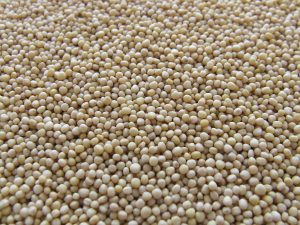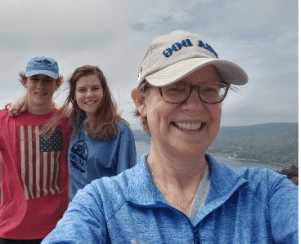
16th Sunday in Ordinary Time – A Mustard Seed of Potential
Matthew 13:24-43 | 16th Sunday in Ordinary Time, Year A
A Mustard Seed of Potential
Mustard seeds are miniscule. I ordered a pack of them for the Faith Formation kids, and that one little pack is going to last for years. But in the right conditions they yield huge trees. Babies are tiny too. Holding an outfit for my daughter-in-utero, I marveled that we were going to be responsible for anything that tiny. Nearly 20 years later, she towers over me. My son clocked in at 7lbs, 13 oz, his fingernails mere slivers. Now, he’s 6’2” and almost 200 lbs. Size does not determine potential.
Maybe in the Parable of the Mustard Seed, Jesus wasn’t chastising us for not having enough faith. Maybe He wanted to recognize that kernel of yellow as the very definition of faith. Faith is “the belief in things not seen” (Hebrews 11:1), and so, by believing in things that don’t appear to be reality—that the mustard seed can become the rooted tree, the baby become the wise adult, the grumpy grocery clerk is worthy of respect, maybe that’s how we express true faith. Belief in a limitless potential is faith the size of a mustard seed. But such a faith is not a small one. On the contrary, it breaks all the bonds humanity puts on it.
When Jesus says we have to be like children to enter the kingdom (Matthew 18:3), perhaps He wants us to have a child’s view of the limitless potential of God. Homilies on the Matthew 18:3 verse often highlight the difference between childlike and childish. Childish is immature and selfish while the definition of childlike connotes innocence and an unawareness of judgment. But to be non-judgmental like a child is to see unlimited potential, to see without arbitrary human boundaries.
When scripture says God can work all things for good (Romans 8:28), it refers to that mustard seed, that limitless potential, the faith that God works outside of human limitations. Faith isn’t so much going out and doing big things in His name, although there’s nothing wrong with that. But faith believes in the mustard seeds all around us—the limitless potential in all things, even in the seemingly impossible. That’s where I, and maybe all of us, stumble.
The recalcitrant neighbor we write off because they don’t wave or mow their lawn. The sibling we tell off because they don’t do their part. The rule we willfully ignore because we don’t see the point. The grocery clerk we chastise because they give us the wrong change. In these people, we only see what’s right in front of us, evidence of the obvious. We don’t see the “things unseen.”
Faith understands that humans have to practice to see beyond the edge of humanity. Faith looks for the mustard seed in all situations (even in seemingly obvious evil). We’re human; we can’t. We have to trust that God sees what we don’t, and so when our faith is the size of a mustard seed, it is in God’s ability not our own.


